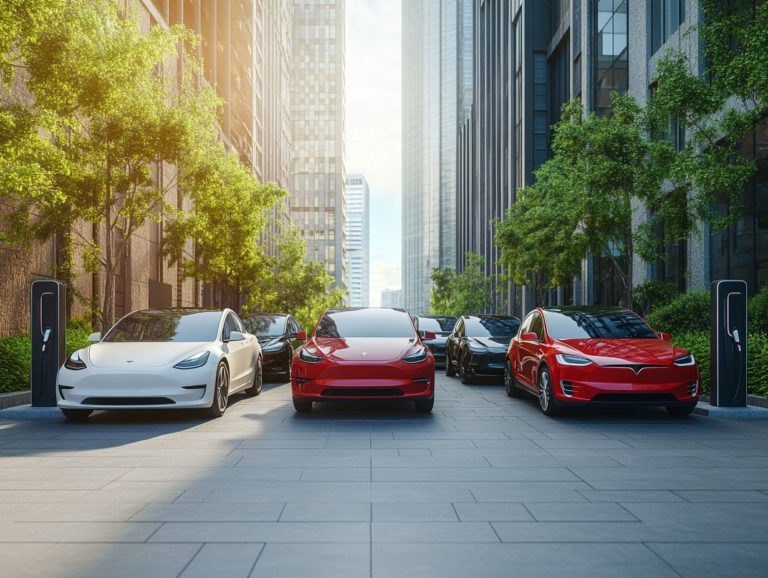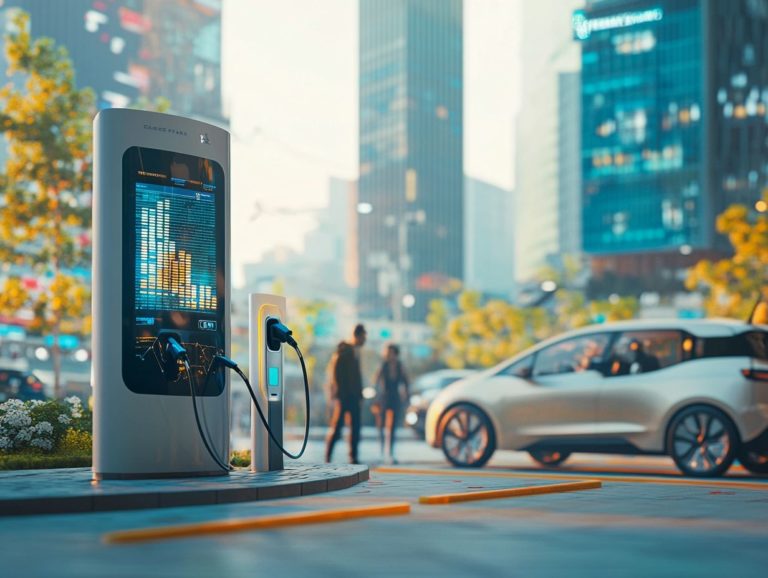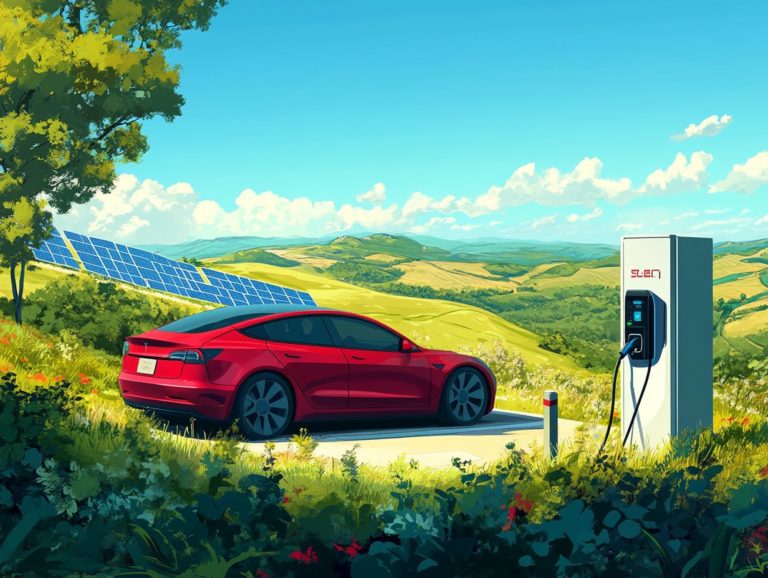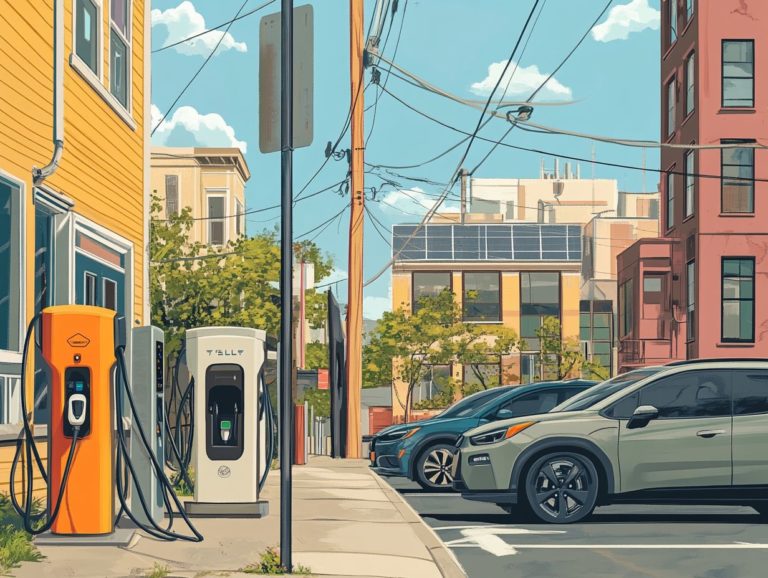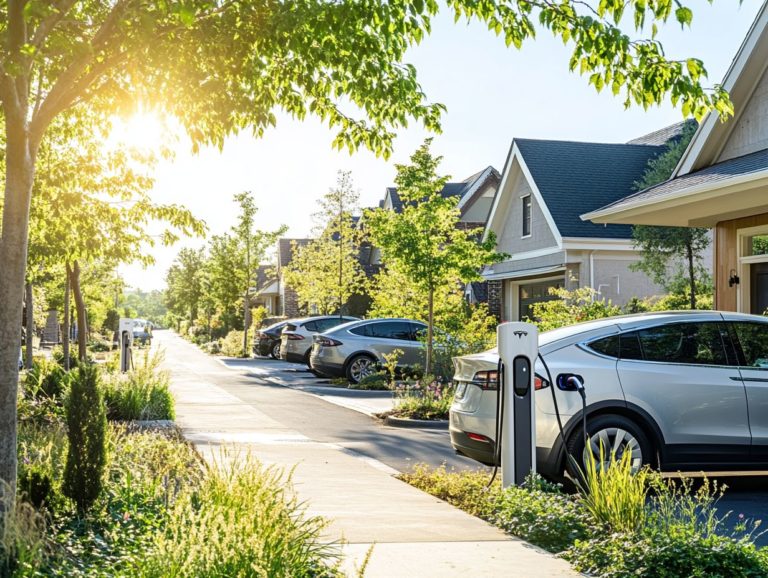What Are the Maintenance Needs of EVs?
As electric vehicles (EVs) rise in popularity, it s essential to understand their unique technology and maintenance needs.
This article delves into the fundamentals of EVs, covering everything from their innovative technology to the specific maintenance tasks necessary for optimal performance.
Uncover the advantages of diligent upkeep, including improved performance and extended longevity. Weigh the decision of whether to handle maintenance yourself or enlist the help of a professional.
Get ready to take your EV experience to the next level!
Contents
Key Takeaways:
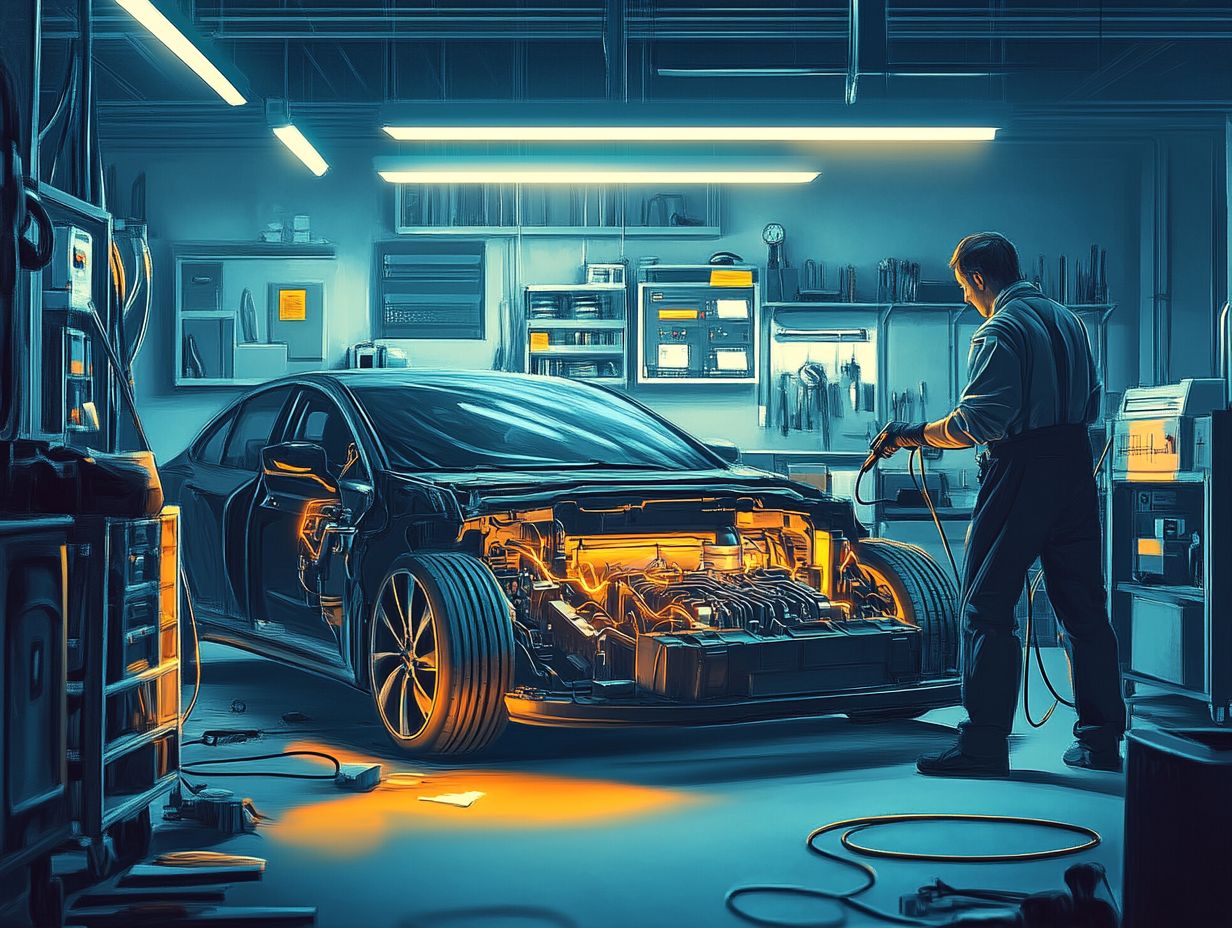
- Regular maintenance is vital for your EV s performance and lifespan.
- Proper maintenance can be handled through DIY methods or by seeking professional help, depending on the task.
- Maintaining your EV can save you money in the long run and improve its overall performance.
The Basics of Electric Vehicles (EVs)
Electric vehicles (EVs) are transforming transportation, offering an eco-friendly alternative to traditional gas-powered cars. Their efficiency comes from fewer moving parts and considerably lower maintenance costs, making them an appealing choice.
The rise of battery electric vehicles and plug-in hybrid electric vehicles, like the Chevrolet Bolt EV, Nissan LEAF, and BMW i3, shows a strong commitment to sustainability and innovation within the automotive industry.
Understanding EV Technology
Understanding EV technology involves grasping the roles of essential components such as the electric motor (the part that drives the car using electricity), batteries, and regenerative braking systems (a system that helps recharge the battery when you slow down). These components greatly contribute to overall efficiency and performance.
These elements work together to provide a sustainable driving experience. The electric motor transforms electrical energy from the battery into mechanical energy, allowing for smooth acceleration and impressive torque right from a standstill something conventional combustion engines struggle to achieve.
Regenerative braking captures kinetic energy lost during braking and converts it back into stored electrical energy, boosting your vehicle s range and efficiency. Unlike gas-powered vehicles, which rely on complex combustion engines, EVs need your careful attention to their electrical and cooling systems. This focus is vital for ensuring optimal performance and longevity, especially given their unique operating conditions.
Maintenance Needs of EVs
The maintenance requirements for electric vehicles (EVs) differ from those of traditional gas-powered cars. As an EV owner, focus on servicing that emphasizes battery life and overall vehicle warranty. This approach enhances both the longevity and performance of your vehicle.
Regular Maintenance Tasks
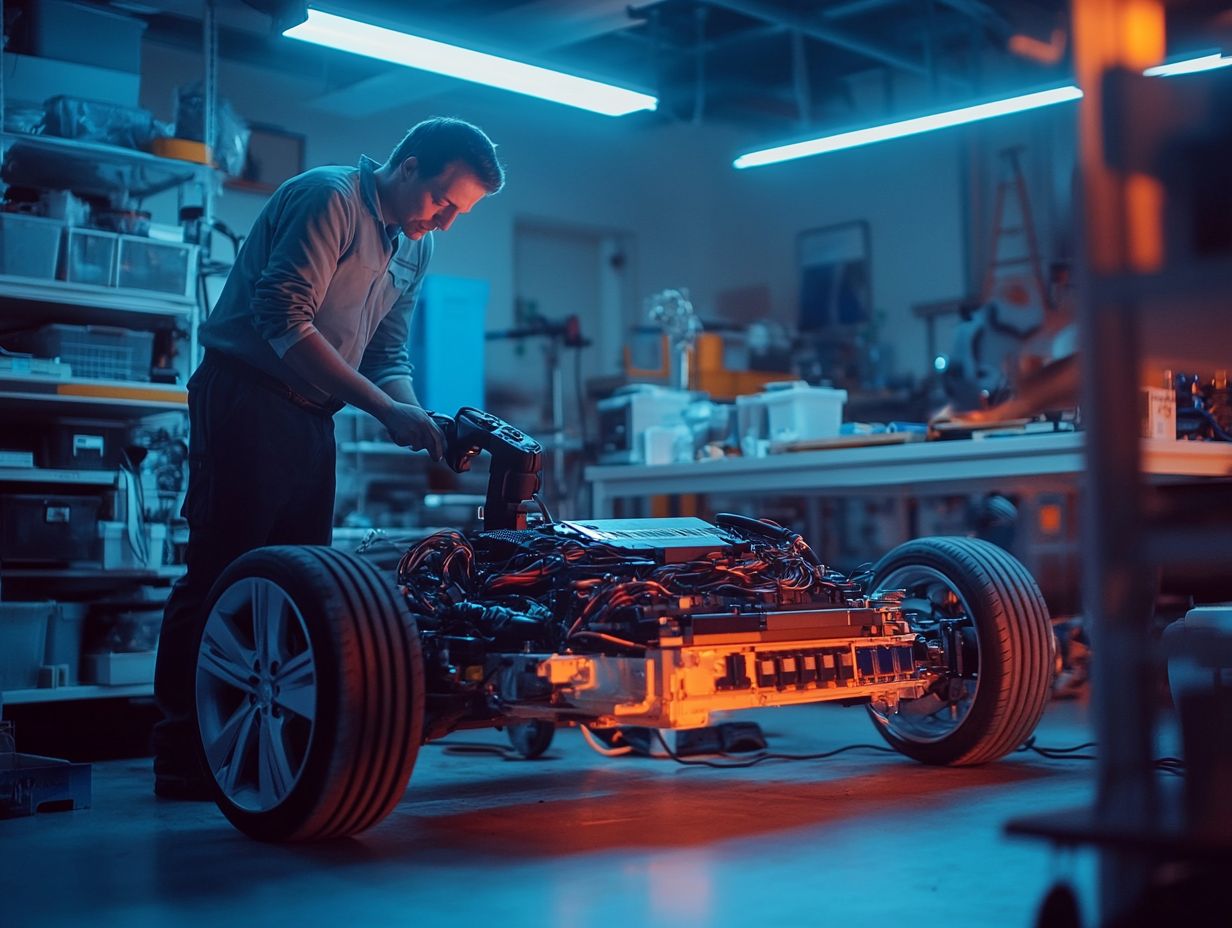
Regular maintenance tasks for your electric vehicle include checking the maintenance schedule for essential components like the cabin air filter, windshield wiper blades, and tire pressure.
These tasks are essential not only for optimal performance but also for your safety and the longevity of your vehicle. A clean cabin air filter ensures better air quality inside your ride, which is especially beneficial for those with allergies. Maintaining the windshield wiper blades guarantees clear visibility during challenging weather conditions.
Checking tire pressure is equally important; properly inflated tires enhance efficiency, reduce energy consumption, and improve handling. Unlike gas-powered vehicles, electric vehicles require less frequent maintenance on mechanical parts, as they lack complex combustion engines. However, neglecting these key tasks could diminish your driving range and compromise your overall driving experience.
Ready to keep your EV in top shape? Let s dive into the essentials of maintenance!
Special Considerations for EVs
The overall health of your battery is critical to performance and longevity. Make sure you have a trained technician for your vehicle! It’s crucial for safety and performance. You need to pay special attention to monitoring battery replacement needs and coolant levels. Proper maintenance goes well beyond routine checks. You should actively monitor the battery’s battery level and temperature to guarantee optimal functioning.
Maintaining appropriate coolant levels is equally important. This helps prevent overheating issues that could compromise your vehicle’s efficiency. Only trained technicians should handle specialized electric vehicle systems, which operate differently from traditional vehicles; improper servicing can lead to serious risks.
Emergency response considerations are paramount as well. Responders must be trained to handle the unique hazards posed by high-power systems, ensuring safe management during accidents.
Benefits of Proper Maintenance for EVs
Understanding the benefits of proper maintenance for electric vehicles is essential for your long-term savings, improved performance, and enhanced longevity. Regular servicing is crucial for owning an electric vehicle, helping you maximize its potential and enjoy a seamless driving experience.
Improving Performance and Longevity
Regular servicing improves your electric vehicle battery’s performance and longevity. To achieve this, it’s crucial to implement smart charging habits. Avoid frequent full charges and discharges, as these can degrade battery health over time. Research shows that maintaining a charge level between 20% and 80% can significantly extend your battery’s lifespan.
Regular inspections are also key. Checking for software updates, inspecting connectors, and monitoring battery temperatures all contribute to enhanced performance. A recent study revealed that vehicles subjected to consistent maintenance practices exhibited up to a 30% increase in battery efficiency over time, highlighting the importance of these practices for every electric vehicle owner.
How to Maintain Your EV
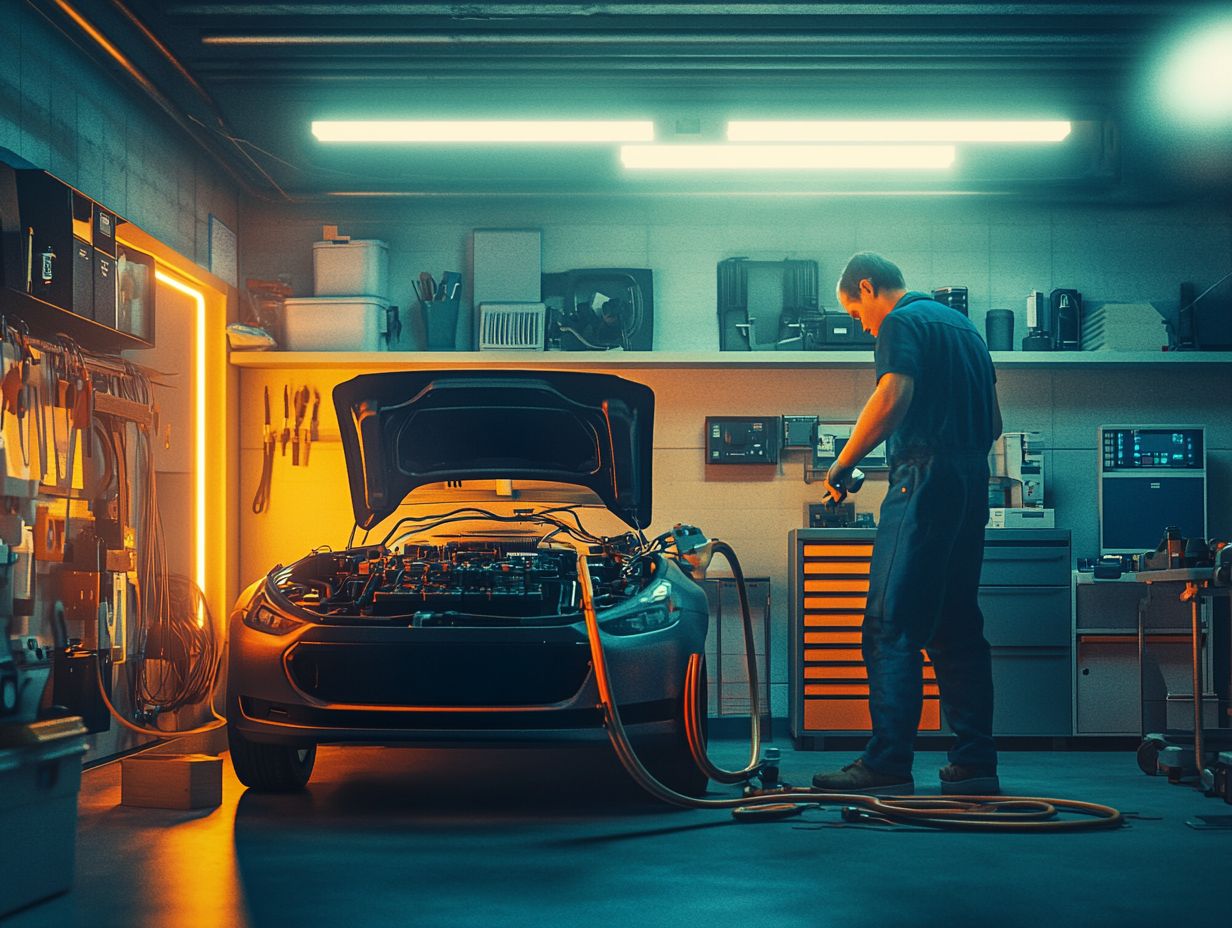
Understanding how to maintain your EV gives you the power to make informed decisions about when to tackle DIY tasks and when to enlist the expertise of a skilled technician. Both approaches are essential in ensuring your vehicle stays on track with its maintenance schedule.
DIY vs Professional Maintenance
When weighing the choice between DIY maintenance and hiring a professional for your electric vehicle, grasp the distinctions while appreciating the value that a trained technician brings to the table.
Engaging in some maintenance tasks can be both rewarding and economical. Simple tasks like checking tire pressure, replacing wiper blades, and monitoring fluid levels are often well within reach for many owners.
However, for more complex issues such as battery maintenance, software updates, or high-power system repairs it’s wise to leave those to the experts. These tasks demand specialized knowledge and tools, not just to ensure your vehicle runs efficiently, but also to safeguard your own well-being during the process.
Striking the right balance between DIY efforts and professional services will ultimately enhance the reliability of your electric vehicle.
Tips for Maintaining Your EV
To ensure the longevity of your electric vehicle, it s essential to adhere to a maintenance schedule. This schedule should include regular checks on battery replacement needs, antifreeze levels, and tire pressure.
These tasks are crucial for optimizing performance and ensuring safety on the road. Regularly inspecting the battery not only prolongs its lifespan but also guarantees that your vehicle operates efficiently. Monitoring antifreeze levels is equally important to prevent overheating and avoid performance dips. Proper tire pressure enhances handling and maximizes your driving range. This makes every journey more enjoyable.
Polishing your vehicle and checking for software updates can significantly enhance functionality and improve your overall driving experience. By staying proactive with these maintenance responsibilities, you’ll enjoy a more reliable and thrilling ride!
Frequently Asked Questions
What Are the Maintenance Needs of EVs?
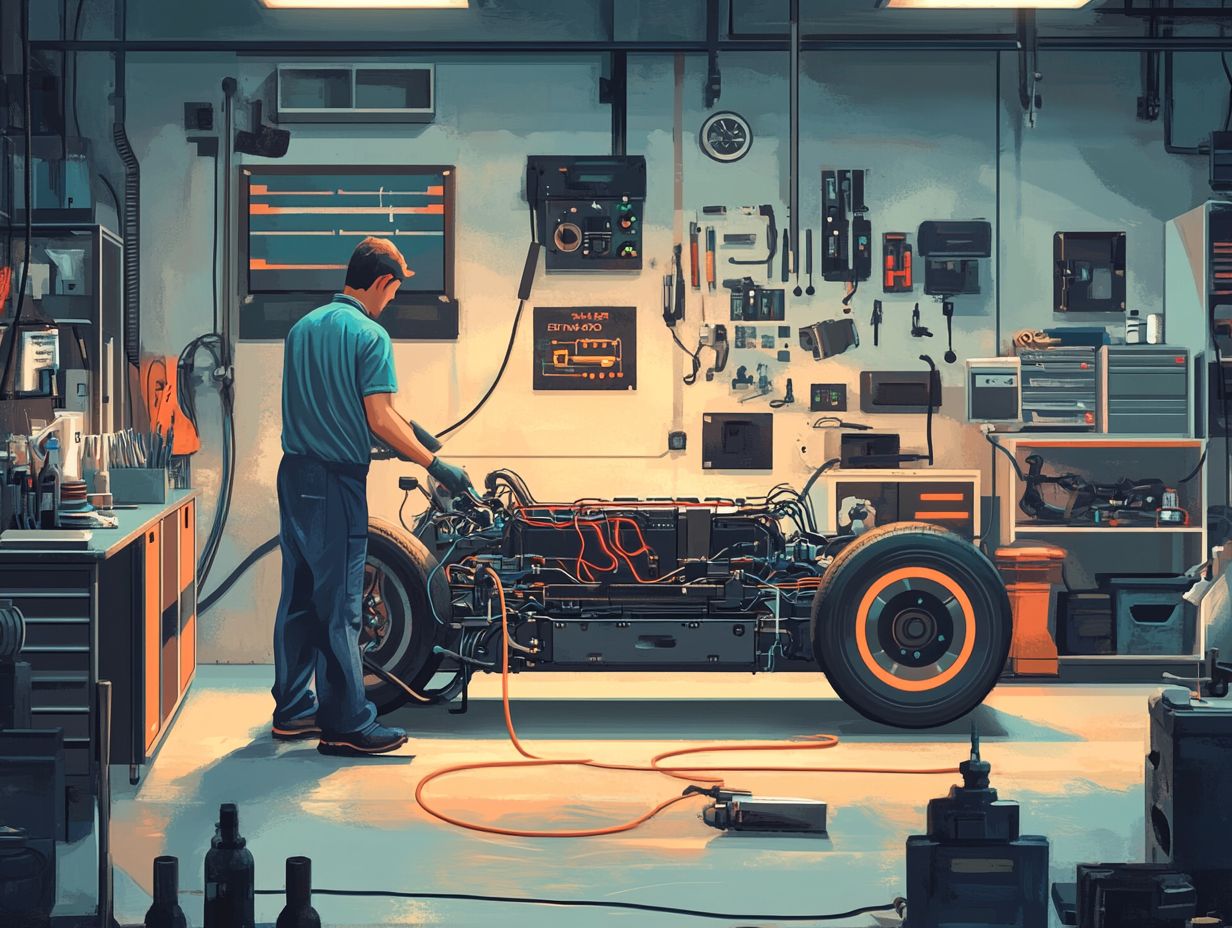
EVs require regular maintenance, just like traditional vehicles. However, their maintenance needs may differ due to their unique components and technology, including understanding what are the most common electric vehicle repairs.
Do EVs need oil changes?
No, EVs do not have an internal combustion engine and therefore do not require oil changes. However, they still need regular maintenance for other components such as brakes and tires.
What type of maintenance is needed for an EV?
EVs require routine inspections and replacements for components such as brake pads, antifreeze levels, and air filters. They also need regular software updates to ensure optimal performance.
Are EVs more expensive to maintain than traditional vehicles?
In general, EVs have lower maintenance costs compared to traditional vehicles due to fewer moving parts. However, the cost of maintenance can vary depending on the brand and model of the EV.
Can I perform maintenance on my EV myself?
While some basic maintenance tasks can be performed by owners, it is recommended to have a certified technician handle any major maintenance or repairs on your EV to ensure safety and proper functioning.
How often do I need to have my EV serviced?
The frequency of maintenance for your EV may vary depending on the make and model, as well as your driving habits. It is recommended to follow the maintenance schedule provided by the manufacturer for optimal performance and longevity of your EV.
Check your EV s maintenance needs now to keep it running smoothly!

